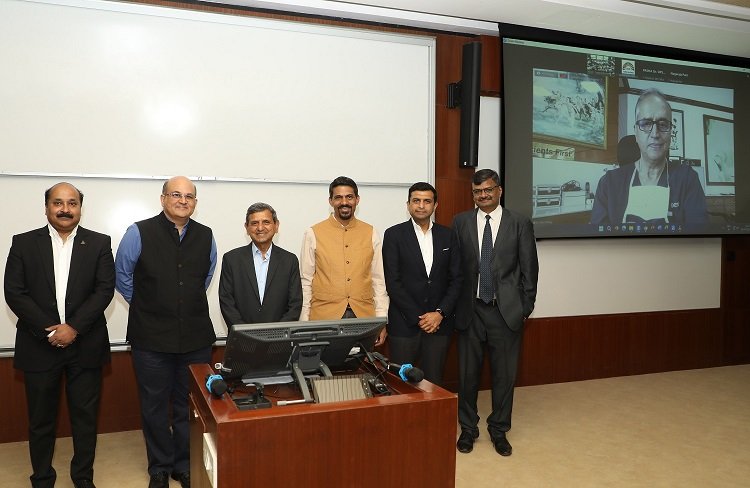Bangalore-based biotech startup UltraNutri raises its first round of funding
The company plans to deploy the funds on innovation, R&D and new collaborations.
UltraNutri, a Bengaluru-based biotech startup at the forefront of revolutionizing insect farming in India, has announced today that it has raised their first round of funding from C Camp, Featherlite Group, and prominent industry veterans including Prof. Ramaswamy Subramanian (Purdue University), Dr. Jogin Desai (Eyestem), Dr. Anand AnandKumar (Bugworks) and Shivram Warrior (Former HUL executive). The company plans to deploy the funds on innovation, R&D and new collaborations.
Currently, UltraNutri has built a pilot “Insect Factory” at Hoskote, Bengaluru, where it tests the scaleup related aspects and produces test quantities required for field trials. The company also plans to raise its Pre-Series A to strengthen its R&D, increase production and perform large-scale field trials.
Aquaculture, or farmed fish, which feeds more than 4.5 billion people, heavily depends on wild catch fish which is also called “fishmeal. The supply constraints related to fishmeal will leave a considerable output gap of 50 million tonnes of aquaculture by 2050. Ultranutri, founded by Prof. Ram Subramanian, Dr. Anand Anandkumar, and Prof. Robert Deschenes aims to address this supply constraints through its breakthrough discoveries using Black Soldier Fly (BSF). Through this, Ultranutri technology also addresses the dual problems of climate change and sustainable aquaculture with a scalable and science-driven solution.
In fact, BSF will significantly reduce the loss of shrimp due to diseases and address the rising cost of feed. This discovery can potentially revolutionize shrimp farming in India- the world’s second-largest exporter of farmed shrimp. Industry estimates peg shrimp loss due to infectious diseases to be north of $ 1 Bn.
Commenting on this, Nitish Sathyanarayanan, Chief Scientific Officer of UltraNutri, said, “The primary challenge in India has been the availability of auditable and affordable feedstock for BSF to grow. Most agriculture waste in India is used to feed cattle and poultry, and the only agriculture waste available, such as sugarcane bagasse, rice stem, and corn cobs, has complex, inedible fibers. Ultranutri, with its team of scientists, has discovered breakthrough methods to render this waste edible for protein production and assist the ecosystem in reducing greenhouse gases which are generated in the disposal of this waste currently. We’re excited and happy to have collaborated with our investors in our journey to create a more meaningful impact in the society.”
The startup recently entered into two key R&D partnerships including Central Institute for Brackish Water Aquaculture (CIBA), a premier institute under Indian Council for Agricultural Research (ICAR), and The Waterbase Ltd, a pioneer in aqua feed manufacturing.
“Cost of production and scaleup has been the primary bottlenecks for shrimp feed manufacturers like WaterBase to incorporate BSF. UltraNutri team is solving these complex problems through their deep biotech expertise. Waterbase is committed to bringing this technology to the market, which will benefit lakhs of farmers,” said Ramakanth Akula, CEO of The Waterbase Limited.
Dr K K Lal, Director of Central Institute for Brackish Water Aquaculture (CIBA) underlines the fact on how this effort would undoubtedly provide a cost-effective alternative protein source to fish meal. “There is a scope to modify the fatty acid profile of the larvae that would also help in finding an alternative to fish oil,” he adds.
The company plans to deploy the funds


